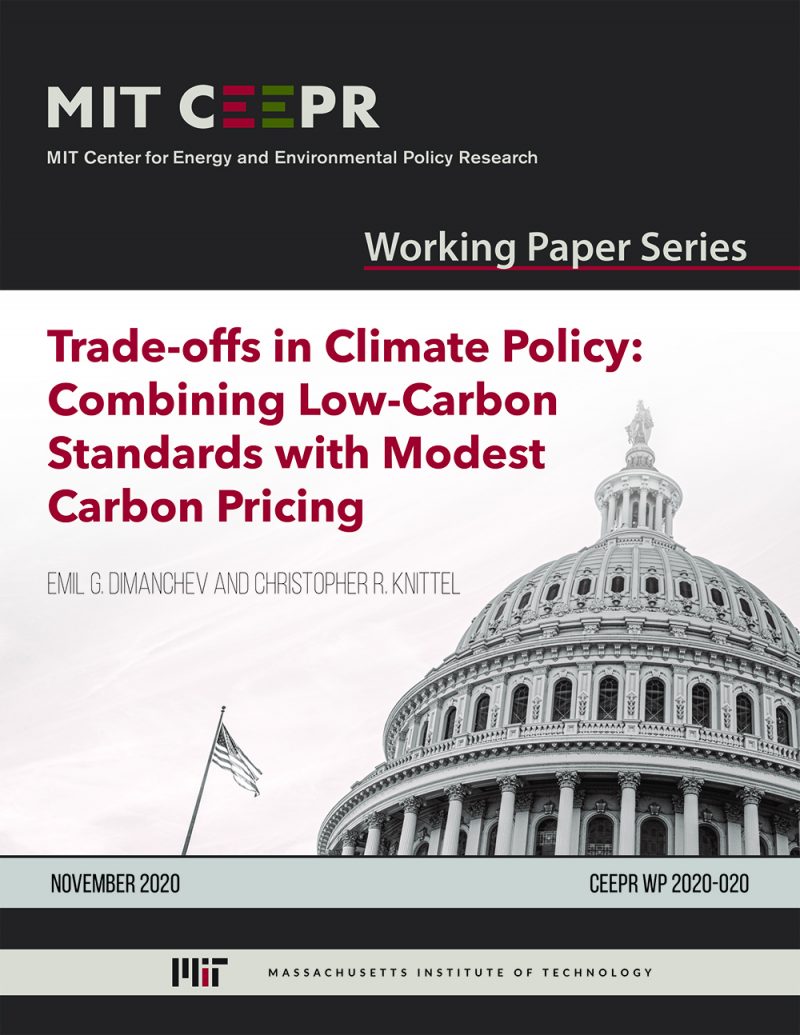Trade-offs in Climate Policy: Combining Low-Carbon Standards with Modest Carbon Pricing
Emil G. Dimanchev and Christopher R. Knittel
November 2020
To design climate policy decision makers must choose from a variety of policy options such as carbon pricing and low-carbon standards. Past research suggests that choosing between these approaches involves trade-offs between the relative efficiency and progressivity of carbon pricing on the one hand and the political acceptability of standards on the other. We argue that a climate policy portfolio that combines both approaches may balance the distinct advantages of each, as well as provide opportunity for consensus between advocates of either option. This paper compares the efficiency of different combinations of standards and carbon pricing by extending previous theory and performing novel experiments using two energy system models. Consistent with prior work, combining low-carbon standards and carbon pricing is shown to reduce policy cost relative to relying on standards alone. More importantly, we find that this cost-saving benefit diminishes with the extent to which the policy portfolio relies on carbon pricing. This suggests that, by adopting modest carbon pricing, policy makers would accomplish a disproportionately large share of the cost savings of economically optimal carbon pricing.



